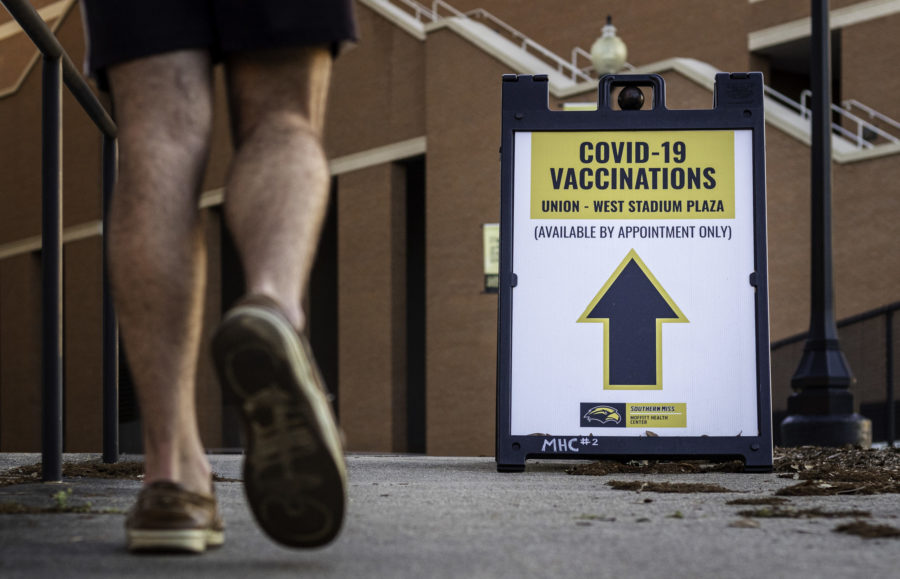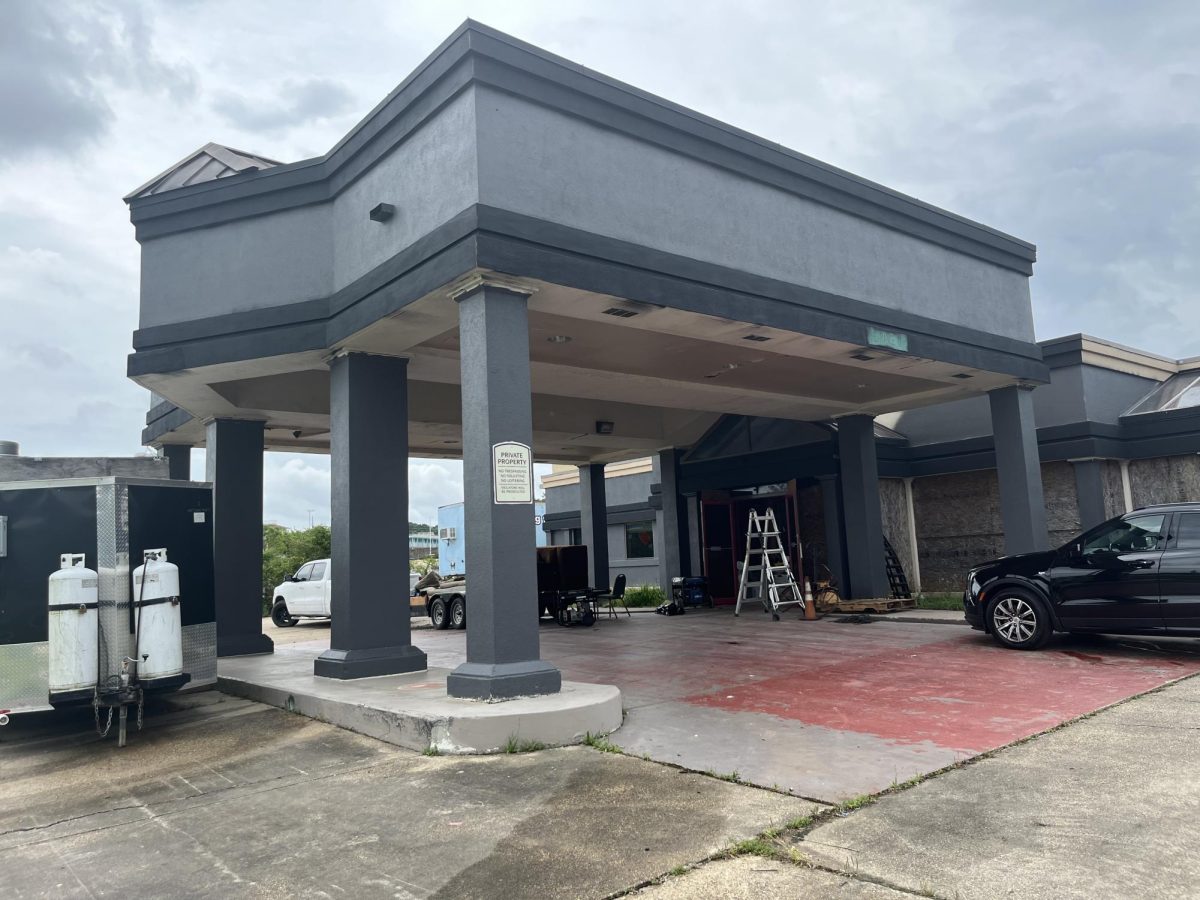As people continue to receive COVID-19 vaccinations across the country, the growing number of reported side effects has alarmed many. However, as thousands wait to get their shots, health officials ensure its safety.
At the University of Southern Mississippi, Kayla Johnson, a Health Educator and Promotions Coordinator at the Moffitt Health Center, helps keep the operations of a dining room-turned vaccination clinic running smoothly. She helps give out vaccine cards and forms while checking in patients. Since opening up the ‘Magnolia Room’, located above the Fresh Food Company, as a makeshift clinic, Johnson has signed more than a thousand vaccination cards.
Since the clinic gave its first shot on March 15, Johnson said the Moffitt Health Center has administered more than 1,374 first doses of the Pfizer-BioNTech vaccine as of April 8. It is available to both student and faculty members with the state’s expansion of vaccination eligibility. The clinic has recently opened appointments for students and faculty to receive their second dose as well, which started on April 5.
Graduate biology Ph.D. student Caroline Sorey, who received both of her shots in March from the Hattiesburg Clinic, said she felt side effects after both of her Moderna COVID-19 vaccines, but had a stronger response after the second shot.
¨I had a headache for a couple of days after the first one, but the second one hit me really hard,” Sorey said. ¨I had a fever of about 101 degrees the night after I got it. With the fever, there also came myalgia, shivering and a really bad headache.
According to the Centers for Disease Control and Prevention, people who receive a COVID-19 vaccination may experience side effects in their arm and fever-like symptoms throughout their body, especially after their second dose.
Dr. Melissa Roberts, Executive Director of the Moffitt Health Center, said that these side effects from the shot are pretty common. It’s essentially the body’s immune system “revving up” to the vaccine, so the response is similar to what happens when you get sick.
“The first dose of the vaccine for a person who has never had COVID-19 is the first time your body has encountered the ‘spike protein’, thus inducing an immune response with some antibody formation,” Roberts said. “When the second dose is administered, your immune system is already primed and ready to fight.”
Roberts said the response helps the body’s immune system to recognize the virus through T-lymphocytes called memory cells. If the body encounters the COVID-19 spike protein again, then b-lymphocytes will produce antibodies to attack it.
Sorey said that her side effects from the second shot lasted for two days. It ultimately affected her ability to work, which is a major concern for students and faculty receiving the shot near the end of the semester.
¨I work as an online tutor and I had a few sessions that day after the shot. I remember thinking about how I [was] going to get through this entire day, so I took a bunch of Ibuprofen and powered through it,” Sorey said.
However, Johnson said that people can treat the side effects with over-the-counter medications like Ibuprofen and Acetaminophen. Johnson also encouraged people to drink fluids to relieve discomfort from fever. Roberts added that the side effects are usually fairly mild and pass quickly.
This was the case for Sorey. Despite the side effects, Sorey believes the vaccine was worth it.
“Once I got my second dose, I started to see the light at the end of the tunnel,” Sorey said. “Now, most of my friends have had one or two of their doses. When we’re in groups together, there’s that instant of worry that you have, but then you take a deep breath and remember we’re vaccinated.”
Because Southern Miss President Rodney Bennett announced the school’s plans to return to a full semester next fall, Johnson said the Moffitt Health Center believes vaccination is important in working towards that plan.
“We believe that vaccination is an important part of individuals doing their part to protect themselves and others as we work toward a traditional fall semester,” Johnson said.
Students and faculty who meet the Mississippi Department of Health’s eligibility for vaccinations can schedule appointments on Moffitt Health Center’s web portal. Johnson also said to contact a healthcare provider if side effects last for more than two to three days, and to go to the nearest hospital if you show signs of a severe allergic reaction.
































